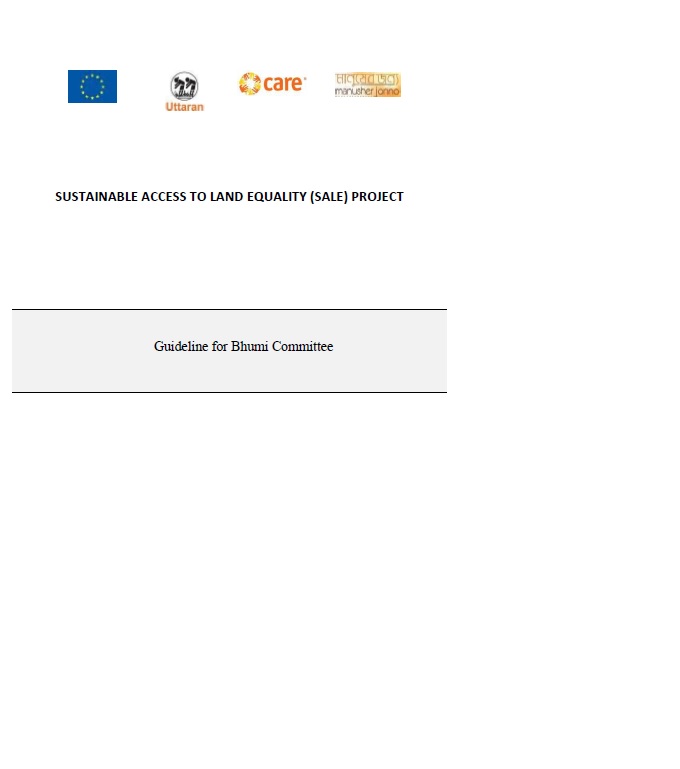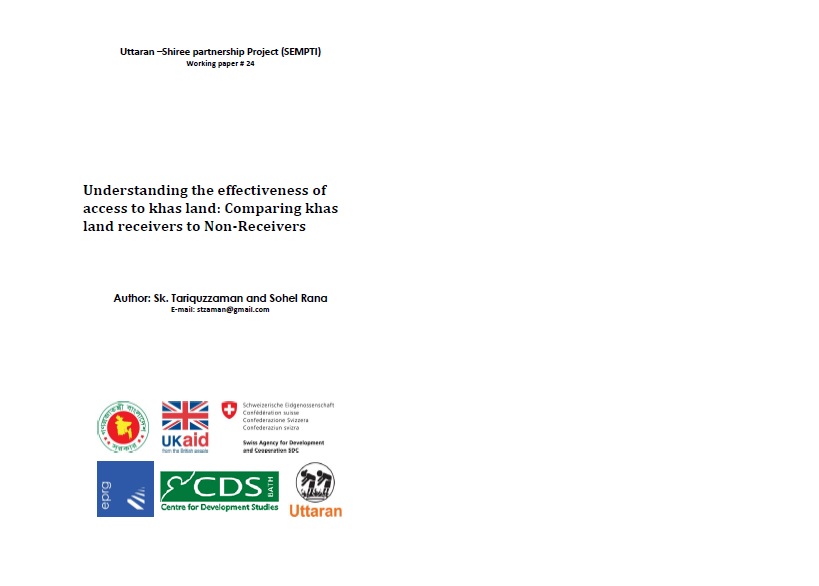Uttaran, which means ‘transition’, in Bangla language, is a people centred organisation using a rights based approach to alleviate poverty, diversify livelihood opportunities and empower poor communities throughout the southwest region and gradually expanding to other parts of Bangladesh. The core focus of Uttaran programs are human rights, land rights and agrarian reform, community based river basin management, sustainable water management, adaptation to climate change, ecological agriculture and food security.
Our vision & mission
Uttaran’s vision and mission reflects our aspiration to work in partnership with local communities and vulnerable individuals to reduce poverty and improve lives.
Vision: A society with gender, class and caste equality.
Mission: Equip the disadvantaged people with the tools needed to deal with their social, environmental, health, economic and cultural issues and concerns.
Goals
We develop our strategies in partnership with local communities and marginalized groups. This people centered approach is vital to making sure that we are able to fulfill our goals.
- Eradicate poverty by creating enabling environment for income, asset base for the poor
- Promote environment friendly sustainable agricultural practices
- Ensure education, health services to the underprivileged and extreme poor
- Ensure people’s participation and good governance
- Ensure quality of life in time of natural and artificially created disaster
- Promote equality, human rights and social justice
Strategies
- Organization and capacity building for the poor
- Ensure sustainable livelihood practices for women and poor
- Ensure women and poor’s entitlement to social services (education, health, safety net)
- Raising voice, influence and agency of poor through advocacy, campaigns, lobbying and networking
- Mainstreaming of rights, gender and inclusion issues
- Building pro poor partnership
- Result Based Management (RBM) practices
Values
- Accountability and transparency
- Non-discrimination and mutual respect
- Gender equality
- Commitment
- Team spirit
- Creativity
- Conservation of resource
Resources
Displaying 46 - 50 of 52Workshop report on Baseline survey facilitation Uttaran Bangladesh
Uttaran began work on the Sustainable Access to Land Equality (SALE) project to ensure transparency and accountability in land governance in December 2012. The project engaged communities in three pilot upazilas - to raise the awareness of vulnerable landowners about land administration, and to effect transparent processes for selecting landless people and for state land settlement.
Guideline for Bhumi Committee_Uttaran Experiences
Land survey and settlement is an irregular work therefore most land owners are ignorant or unconscious about this matter, as a result later on they fall in trouble about ownership. Especially, poor and marginalized land owners are mostly affected. At the time of survey the land owner face a great problem if the land is not recorded properly. Participation of people are really limited in most publicly administrated government works. As there is no participation of people, lots of great idea turn into failure. It is important to know and understand any people related works.
TRAINING ON HUMAN RIGHTS AND GOOD GOVERNANCE
Land sector is the part of the people's rights and governance as land administration clearly linked with people and land. Uttaran's staff and other team members need to know clearly about the rights and governance and how it linked with land registration. The training was organised by the Manusher Jonno Foundation and other external facilitators.
Advocacy poster for state land allocation for land less people in Bangladesh
Uttaran is the pioneer leading national non-government to promote rights for landless people of Bangladesh since 1985. As part of its activities under land less people and state land settlement, it has already piloted the participatory land less selection process and state land identification. The process has been accelerated with number of communication materials such as posters, leaflets and brochures. This poster has described the discrimination between men and women during state land allocation and also promote advocacy agenda with government.
Understanding the effectiveness of access to khas land: Comparing khas land receivers to Non-Receivers
This study highlights that access to khasland is a strongly political process where the collective movement played a pivotal role in shaping the livelihoods of land receivers. The paper shows that 1. khasland provides insurance and security through creating diverse income opportunities which can often mitigate the negative and long term impacts of shocks and allow khasland receivers to cope better with shocks 2. khasland allocation incentivises women’s engagement with labouring activities, household asset management, as well as their mobility within the village 3.







